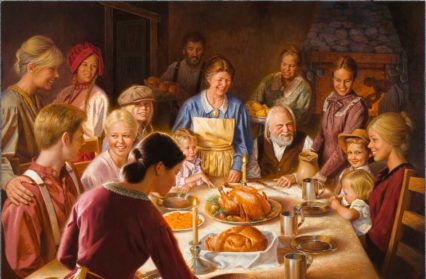Writers are not all-seeing. I couldn’t see as far as my editor when I was putting together Funderland, my first collection of stories. She spotted the family theme, which meant we could drop anything that didn’t share it. Whereas a mixture might have demonstrated versatility for a vain writer, a theme represented focus and concentration for an objective editor and her publisher.
Having established thematic continuity, of course, I had to live with it, or live with the idea that it was my abiding influence. I suppose it might be, which leaves stories beyond the catchment area thrashing about for a theme of their own.
Stories about functional families don’t make very entertaining reading, because the events which give a story its onward march are not dramatic or disruptive enough to be anything other than subsumed beneath a pacific domesticity, real or imagined. Imagined tranquillity is the sort of thing that gets me going. Revealing the anxiety beneath surface calm is what gets most writers going.
Only writers willing to endure vilification or worse under their own roofs would make their work autobiographical. Many are drawn to familiar familial strife. Many of those, like me, see dysfunction as a means of better appreciating household harmony for the sanity it provides. No-one’s perfect, especially conjoined men and women in their moments of extremity and doubt, but rupture is always predicated on the notion of repair, of a return to worry-free state, or the transition to another one.
When I came to think about it, the identification of a family theme in my work didn’t strike me as new or original. I began listing recently-read titles. The latest, belated, one was This Boy’s Life, by Tobias Wolff, the first part of his two-volume autobiography. It begins with the boy Tobias driving through a snowstorm with his mother and narrowly avoiding a crash with a runaway juggernaut. Flight, inhospitable weather, impending disaster, absent father – all presage a chronicle of dysfunction, which the author’s survival turns into a rite of passage rather than a means of explaining any personal or anti-social deficiency. Then there were Sam Shepard’s Cruising Paradise and Great Dream of Heaven, tales of things going or gone awry in the American fastnesses and flawed characters on the move, away from or forward to their Nemeses.
Shepard’s work reminded me of my first literary experience of family strife, in Hemingway’s ‘The Short Happy Life of Francis Macomber’, a story of a man reacting badly to a perception of the male as someone whose role is to meet the expectations of his wife in surroundings where the man is himself measuring up to the idea of masculinity in the company of other men. This led much later to Raymond Carver and the American New Realists – more characters aching for a sort of family or marital stability in an atmosphere of relentless transience, due more than partly to their own shortcomings. Carver moves into deeper tragic territory with ‘The Cabin’: Mr Harrold, a widower, returns to the place in the hills he once visited with his wife in halcyon days, which have become empty, fractured and threatening.
When families are class-predicated, the cracks vary in their tendency to show. The novelist John Braine, author of Room At The Top, once distinguished between the working class and middle class by comparing their relative hang-ups. The workers, he said, evinced direct emotions limited in number and therefore had no guilt about sex because it was simply an extension of their mechanical, physical way of life; for the bourgeoisie, sedentary and thinking about too much, the activities were tangled in guilt and misgiving and could never just ‘get on with it’. (The views of so-called ‘middle class’ or right-of-centre authors are always controversial where others from the opposite side cause not a ripple.)
My paternal grandfather, a former miner, succumbed to some sort of depression late in his life and spent a short time recuperating with one of his daughters in Kent; she was a nurse. The incident was never talked about or widely vouchsafed at the time. A year before he died and in a moment of late shedding of lower middle-class inhibition, my father told me that, then a car mechanic, he (my father) had ‘almost gone down’ while working unbearably long hours during the war introducing service personnel to the mysteries of the internal combustion engine.
Inhibitions not yet shed prevent my turning these experiences or any others that might come to me into direct, autobiographical fiction. But they do indicate that the idea of all’s not being well in the family has obviously been the spur to invented irregularity.
In no photograph extant does my paternal grandfather smile, and in one or two he is looking out of the picture with some undefined preoccupied intent, perhaps at some manifestation of the half-filled glass. Braine might have said that a destructive working-class upbringing, or an upbringing marked by violence, degradation, fecklessness, lack of direction or mental confusion, could only be written about by someone who had grown out of it into a state where they were not regarded as the norm and therefore unremarkable – the middle class perhaps, that stratum in which there is time and inclination to think about things and read fiction, but in which anything worrisome, destructive or abnormal will surely be suppressed. Writers, naturally, are inclined to take the cover off, whatever class they find themselves in, while reminding themselves that they, too, might be part of a scenario that’s not all it seems to be.
Funderland, by Nigel Jarrett, was published by Parthian in 2011 and was longlisted for the Edge Hill Prize. His latest collection, Who Killed Emil Kreisler?, was published in November 2016 by Cultured Llama.



 Enjoyed this article? Support our writers directly by buying them a coffee and clicking this link.
Enjoyed this article? Support our writers directly by buying them a coffee and clicking this link.








